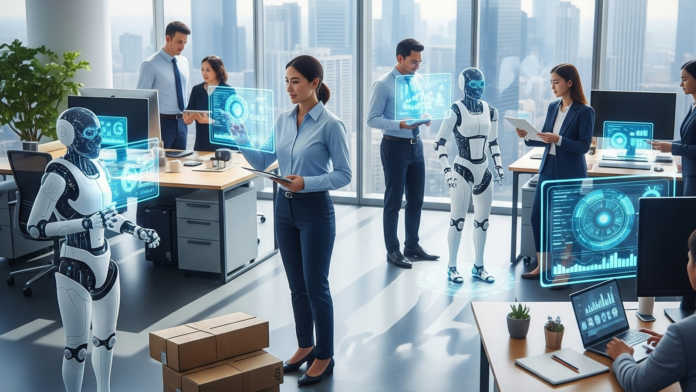Autonomous AI isn’t just the hype anymore, it’s now a permanent fixture in boardrooms, backends, and daily workflows across Fortune 500 companies. From streamlining customer service to handling cybersecurity threats, these systems are starting to look less like tools and more like invisible coworkers that are working 24/7, error-free, and often two steps ahead.
What are autonomous AI agents?
Think of them as intelligent software agents that can plan, execute, and improve their tasks without constant hand-holding. They tap into large enterprise systems, analyse mountains of data in real time, and take actions. Be it rerouting logistics or shortlisting job applicants, without waiting on human commands. And they’re not static either. These systems learn continuously from operations, adapting strategies to optimize outcomes with each run.
Key applications in Fortune 500 companies
In customer service, AI agents now go far beyond scripted chatbots. They understand tone, context, and even customer history to resolve issues, and escalate only when truly necessary. On the backend, supply chains are getting smarter. AI agents analyse weather, demand, and raw material prices to adjust inventory and shipping in real time.
Cybersecurity teams have also handed the reins to AI systems that detect anomalies, isolate threats, and initiate defensive actions before human analysts even get the alert. HR departments, meanwhile, are using AI to scan resumes, predict attrition, and even personalize onboarding experiences.
Big players like Microsoft are integrating AI agents into Teams and Outlook to automate scheduling and communication. Amazon is optimizing warehouse operations with autonomous decision systems. JPMorgan Chase uses AI to improve fraud detection and customer risk analysis.
Benefits and challenges
The upside is clear: better accuracy, faster decisions, and happier customers. Employees get more time for high-value work. Costs drop. But it’s not without complications. These agents need deep integration with legacy systems, a technical hurdle. Privacy and bias remain ongoing concerns. There’s also the lingering fear of automation replacing people, not just tasks.
That’s why many firms are balancing adoption with upskilling programs and transparent AI governance to keep humans in the loop.
Future of Autonomous AI in corporate America
AI agents aren’t coming, they’re here, quietly transforming operations in real-time. And as the systems become more intuitive, companies that master their integration without losing sight of ethics will lead the next chapter of corporate growth and innovation.


